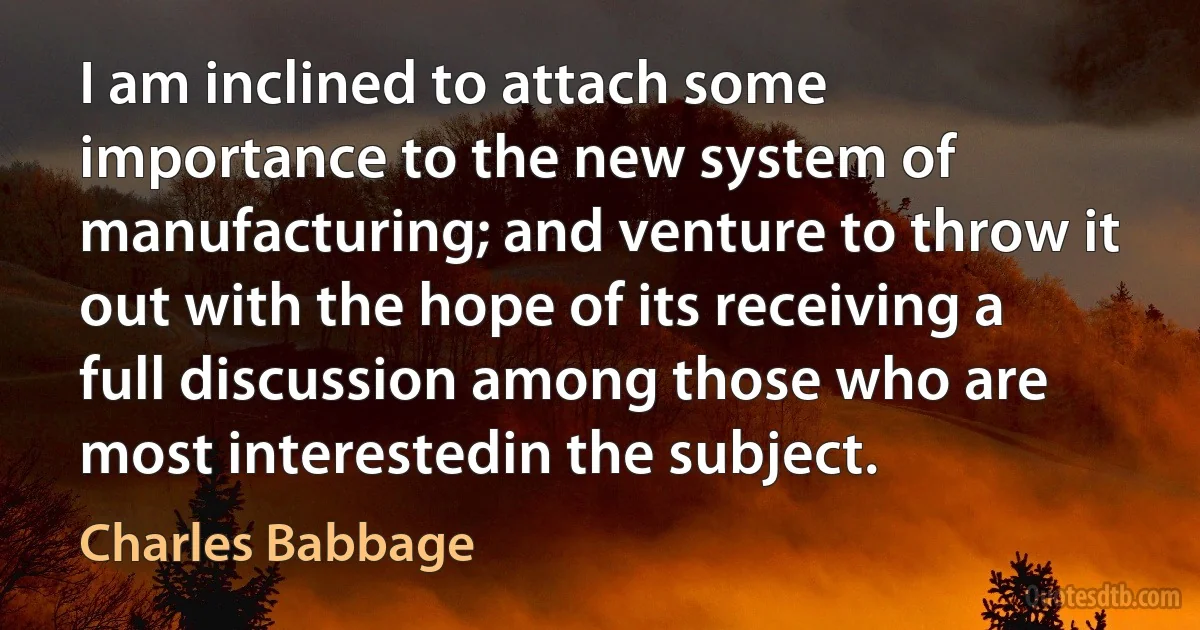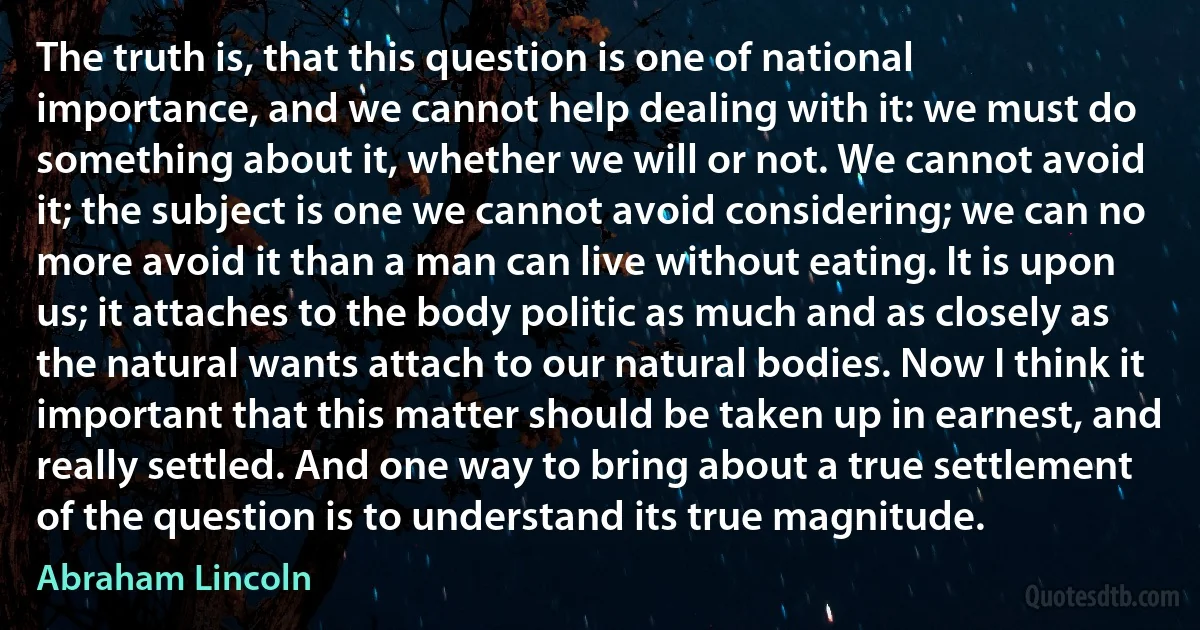Attach Quotes - page 4
I have a "Task": To foster all mankind and ensure for all of them lives full of ananda (bliss). I have a "Vow": To lead all who stray away from the straight path again into goodness and save them. I am attached to a "work" that I love: To remove the sufferings of the poor and grant them what they lack. I have a "reason to be proud", for I rescue all who worship and adore me, aright. I have my definition of the "devotion" I expect: Those devoted to me have to treat joy and grief, gain and loss, with equal fortitude. This means that I will never give up those who attach themselves to me.

Sathya Sai Baba
The first intellectual operation in which I arrived at any proficiency, was dissecting a bad argument, and finding in what part the fallacy lay; and though whatever capacity of this sort I attained was due to the fact that it was an intellectual exercise in which I was most perseveringly drilled by my father, yet it is also true that the school logic, and the mental habits acquired in studying it, were among the principal instruments of this drilling. I am persuaded that nothing, in modern education, tends so much, when properly used, to form exact thinkers, who attach a precise meaning to words and propositions, and are not imposed on by vague, loose, or ambiguous terms. The boasted influence of mathematical studies is nothing to it; for in mathematical processes, none of the real difficulties of correct ratiocination occur.

John Stuart Mill
It is a mistake to assume that diplomacy can always settle international disputes if there is "good faith" and "willingness to come to an agreement". For in a revolutionary international order, each power will seem to its opponents to lack precisely these qualities. [...] In the absence of an agreement on what constitutes a reasonable demand, diplomatic conferences are occupied with sterile repetitions of basic positions and accusations of bad faith, or allegations of "unreasonableness" and "subversion". They become elaborate stage plays which attempt to attach as yet uncommitted powers to one of the opposing systems.

Henry Kissinger
What we call objective reality is, in the last analysis, what is common to many thinking beings, and could be common to all; this common part, we shall see, can only be the harmony expressed by mathematical laws. It is this harmony then which is the sole objective reality, the only truth we can attain; and when I add that the universal harmony of the world is the source of all beauty, it will be understood what price we should attach to the slow and difficult progress which little by little enables us to know it better.

Henri Poincaré
It is the example of the rider who wishes to become an expert horseman: "None of your soft-mouthed, docile animals for me," he says; "the horse for me to own must show some spirit" in the belief, no doubt, if he can manage such an animal, it will be easy enough to deal with every other horse besides. And that is just my case. I wish to deal with human beings, to associate with man in general; hence my choice of wife. I know full well, if I can tolerate her spirit, I can with ease attach myself to every human being else.

Socrates
If there is a sense of reality, there must also be a sense of possibility. To pass freely through open doors, it is necessary to respect the fact that they have solid frames. This principle, by which the old professor had lived, is simply a requisite of the sense of reality. But if there is a sense of reality, and no one will doubt that it has its justifications for existing, then there must also be something we can call a sense of possibility. Whoever has it does not say, for instance: Here this or that has happened, will happen, must happen; but he invents: Here this or that might, could, or ought to happen. If he is told that something is the way it is, he will think: Well, it could probably just as well be otherwise. So the sense of possibility could be defined outright as the ability to conceive of everything there might be just as well, and to attach no more importance to what is than to what is not.

Robert Musil
There was a time when philosophy might have been defined as the science of human activity, so all-comprehensive was it. The ambitious Greek who would attach his name to a philosophical system must include in his scheme all that could be known, done, and speculated about God, the world, and man. In the course of time and the specialization of the sciences this view of philosophy fell away, and was replaced by the more exact and narrower conception of modern times.

Nicholas Murray Butler
Later I had two green ones [alligator pears] - not so perfect. I painted them several times [c. 1920] when the men [American modernist artists, a. o. Marsden Hartley ] didn't think much of what I was doing. They were all discussing Paul Cézanne, with long involved remarks about the 'plastic quality' of his form and colour. I was an outsider. My colour and form were not acceptable. It had nothing to do with Cézanne or anything else. I didn't understand what they were talking about why one colour was better than another... Years later when I finally got to Cézanne's Mont Sainte-Victoire in the south of France, I remember sitting there thinking, 'How could they attach all those analytical remarks to anything he did with that mountain?

Georgia O'Keeffe
It sounds rather strange to talk of an infinite universe still expanding. If we were certain that the curvature was negative, we might still, as in the case of positive curvature, replace the phrase "the universe expands" by the equivalent one "the curvature of the universe decreases." But if the curvature is zero, and remains zero throughout, what sort of meaning are we to attach to the "expansion"? The real meaning is, of course, that the mutual distances between the galactic systems, measured in so-called natural measure, increase proportionally to a certain quantity R appearing in the equations, and varying with the time. The interpretation of R as the "radius of curvature" of the universe, though still possible if the universe has a curvature, evidently does not go down to the fundamental meaning of it.

Willem de Sitter



